2020 Graduate Fellows Colloquia
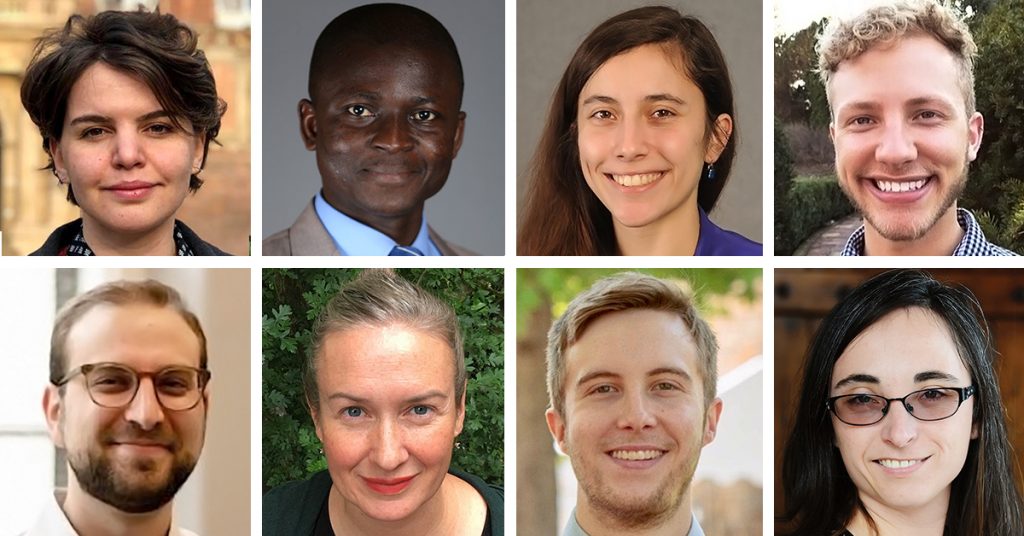
Join the 2019-2020 cohort of graduate fellows in Jewish Studies for colloquia presenting their research, moderated by Jewish Studies faculty.
Learn more and register to attend each of the panels via Zoom by clicking the links below.
- PANEL #1 | Monday, June 1, 2020, 11:30 a.m. — 1:00 p.m. PT
Bret Windhauser, Francis Abugbilla, Eryk Waligora
- PANEL #2 | Wednesday, June 3, 2020, 11:30 a.m. — 1:00 p.m. PT
Violence, Victimhood & the “Natural Order”
Oya Rose Aktas, Derek Wiebke
- PANEL #3 | Friday, June 5, 2020, 11:30 a.m. — 1:00 p.m. PT
Tracing Unruly Edges: Jewish Embodiment from Babylonia to the Mediterranean
Canan Bolel, Jennifer Hunter, Erin Gilbert
PANEL #1 | Regional and Global Dimensions to Israeli Foreign Policy: Shifting Relationships with the Palestinian Territories, Ghana, and Taiwan
Monday, June 1, 11:30 a.m. – 1:00 p.m. PT
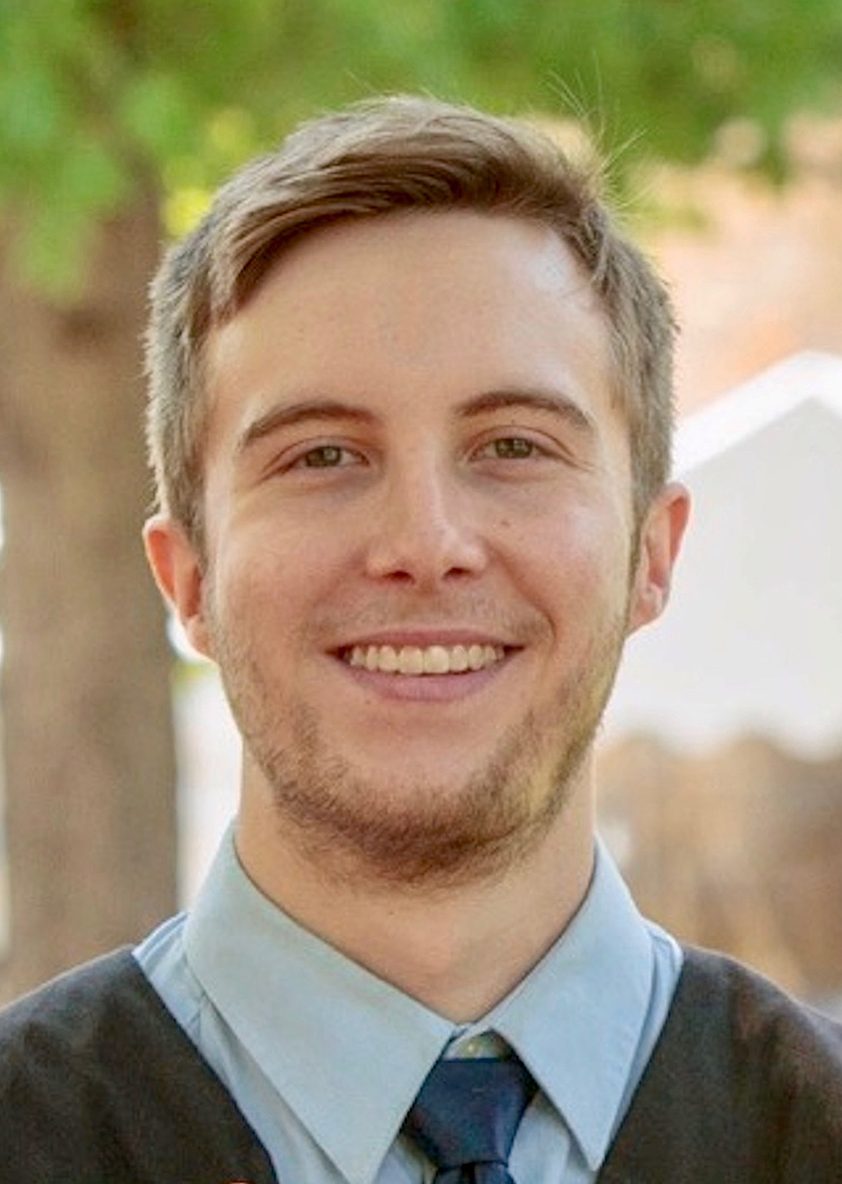
Bret Windhauser, Mickey Sreebny Memorial Scholar
“Over and Under the Border: Goods Smuggling in Israel/the Palestinian Territories”
Bret Windhauser is currently a second-year master’s student studying Arabic and modern Turkish in the Department of Near Eastern Languages and Civilization. He double majored in French and international and global studies at Sewanee: The University of the South before coming to Seattle. Previously, he researched refugee movement and smuggling networks between Europe and the Middle East. This work was primarily based on time he spent in the jungle camp in Calais, France, where networks smuggled goods and people between France and the UK. His M.A. thesis focuses on smuggling networks that operate between Israel and the Palestinian Territories and the issues they create for state-building.
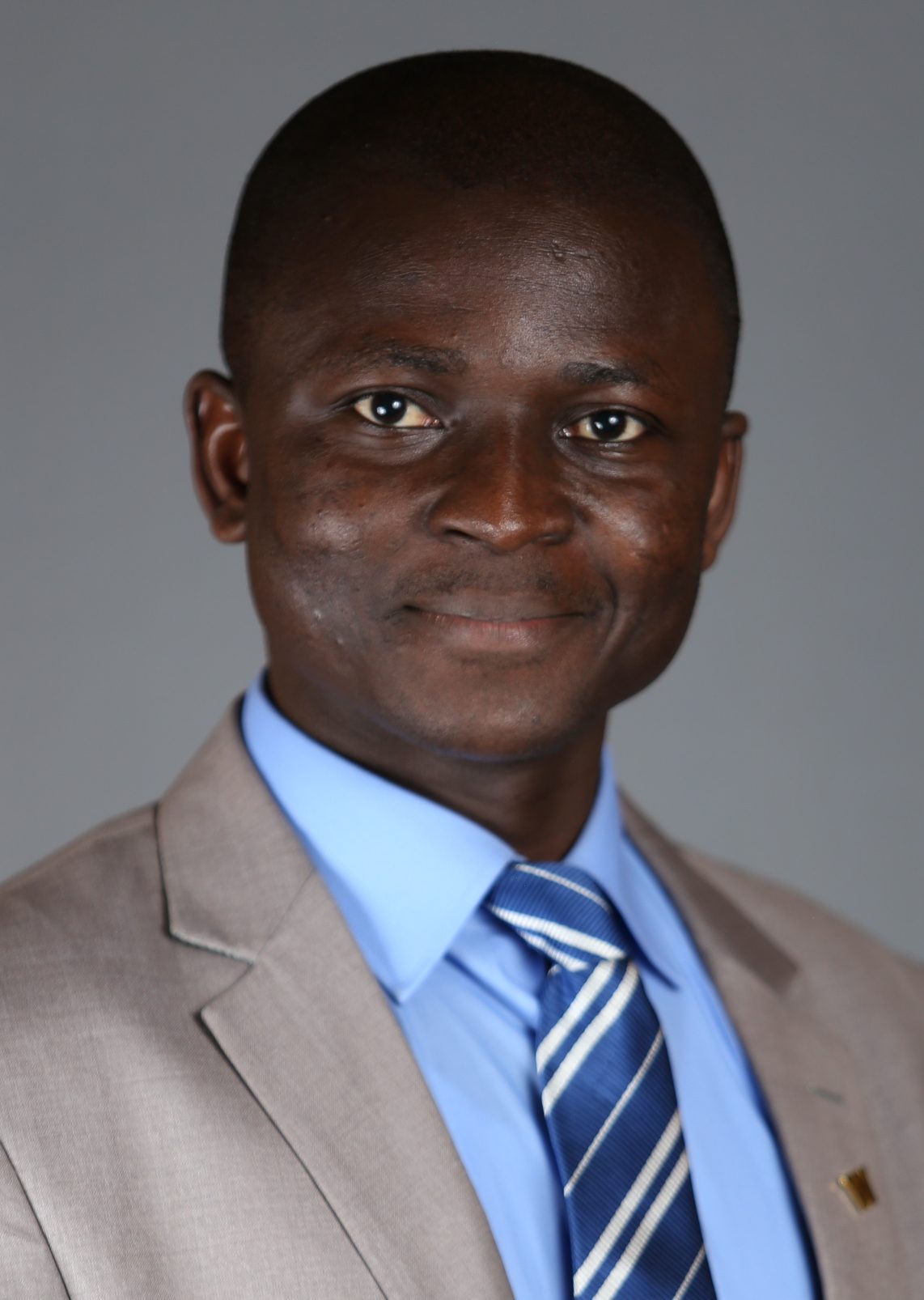
Francis Mbawini Abugbilla, Benaroya Israel Studies Fellow
“Diplomacy at the Crossroads of Recognition and Development: Israel-Ghana Relations Explained”
Francis Mbawini Abugbilla is a Ph.D. candidate in international studies and the International Policy Institute fellow at the University of Washington’s Henry M. Jackson School of International Studies. He is also an associate researcher at Laboratoire de Sociologie Economique et d’Anthropologie des Appartenances Symboliques (LAASSE) at the Université Félix Houphouët-Boigny in Côte d’Ivoire. He researches conflict resolution and peacebuilding mechanisms in post-conflict societies. His dissertation focuses on how post-conflict peacebuilding mechanisms affect the prospects of reconciliation in Africa. His secondary research interests include human rights, governance, and youth empowerment. This summer, Francis is conducting fieldwork in Côte d’Ivoire, where he will interview the leadership of the Jewish community in Côte d’Ivoire about their role in post-conflict peacebuilding.
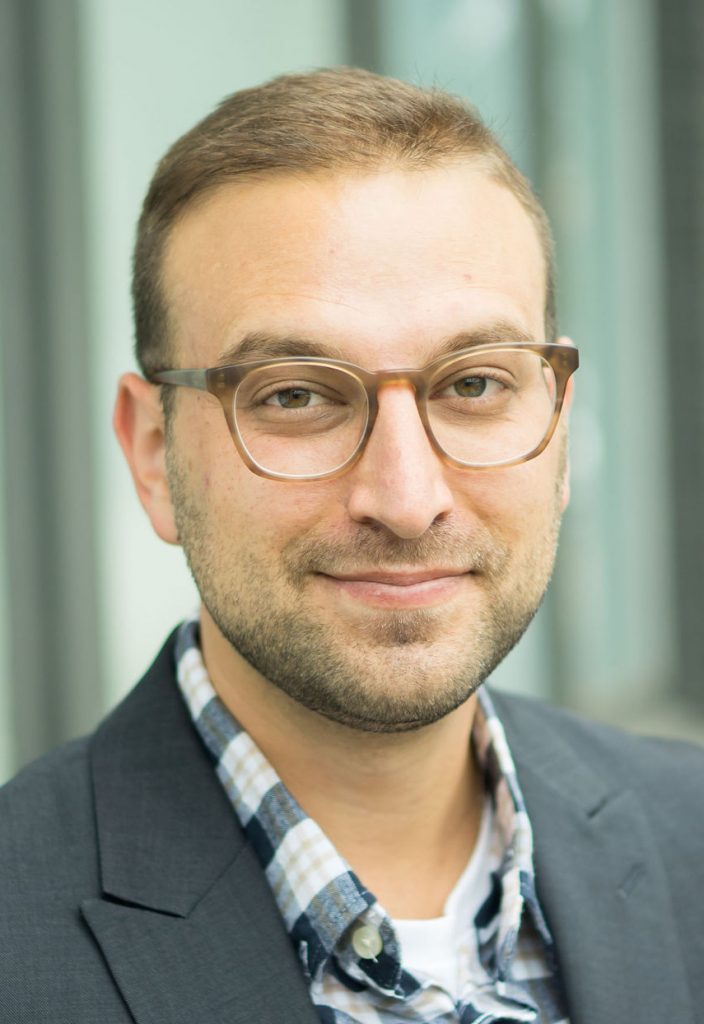
Eryk Waligora, Robinovitch Family Fellow
“Unrecognized: How Israel and Taiwan are Forging New Soft Power Relations”
Eryk Waligora is a graduate student in the University of Washington’s Henry M. Jackson School of International Studies, where he is pursuing an M.A. in International Studies and learning Mandarin Chinese. He is also a graduate student at the UW School of Information, where he is pursuing an M.S. in Information Management with a focus on cybersecurity and disinformation. Before coming to the University of Washington, Eryk graduated from the University of California, Los Angeles (UCLA). He previously worked for several international tech startups in data research, as an Associate Producer at NBCUniversal, and for an international export company supporting East Asia new business development. During his graduate studies he has focused primarily on US, China, and Taiwan relations, as viewed through the lenses of political economy, digital democracy, digital diplomacy, cybersecurity and disinformation. After graduation, he is looking forward to pivoting into a career in global cybersecurity strategy and consulting. Eryk is excited to be a Jewish Studies graduate fellow as a way to connect with other students around similar interests, explore connections in the national histories of Israel and Taiwan, and dive into the meaning of Jewish identity on a global scale.
PANEL #2 | Violence, Victimhood & the “Natural Order”
Wednesday, June 3, 11:30 a.m. – 1:00 p.m. PT
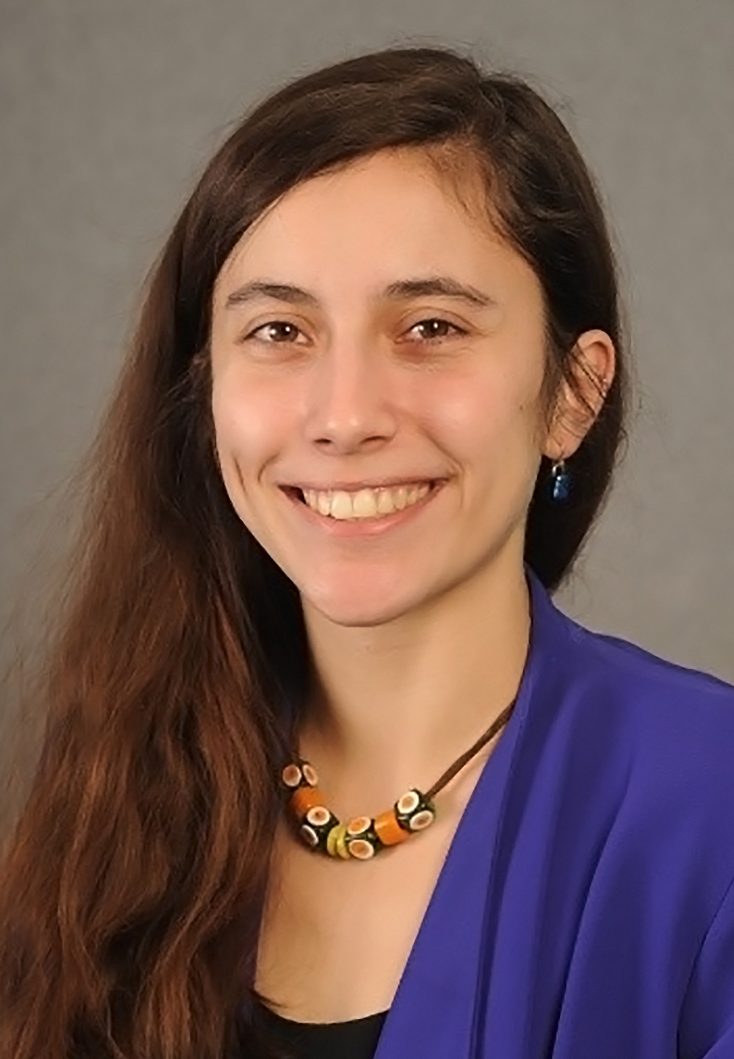
Oya Rose Aktas, Rabbi Arthur A. Jacobovitz Fellow
“Beyond Victim and Perpetrator: Understanding the 1915 Genocide Through the Jewish Press Between the Liberal and National Orders”
Oya Rose Aktaş is a Ph.D. student in the Department of History studying non-dominant populations in the late Ottoman Empire and early Turkish Republic. Her current research focuses on how state violence targeted at Christians affected the position of Jews in Istanbul in the decades before and after World War I. Prior to graduate school, Oya worked on US foreign relations and economic policy at think tanks in Washington, D.C.
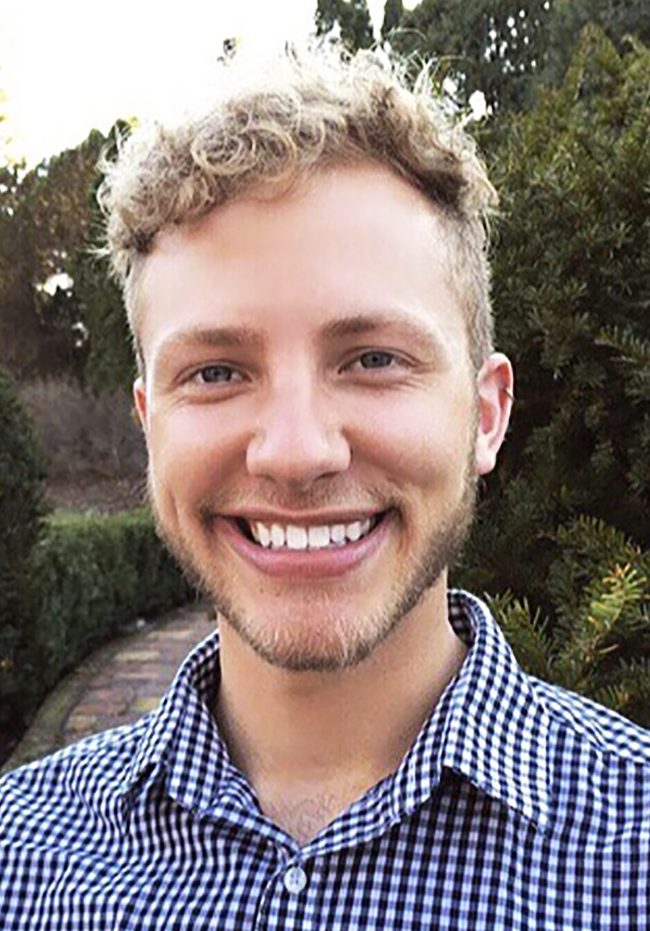
Derek Wiebke, Max Sarason Fellow
“Beyond Victim and Perpetrator: Reading the Holocaust as Ecological Wound in Elfriede Jelinek’s ‘The Children of the Dead'”
Derek Wiebke is a second-year master’s student in the Department of Germanics. He earned his B.A. from the University of Minnesota with a degree in German, Scandinavian and Dutch and a minor in medieval studies. He is now primarily interested in German language literature from the 19th to the 21st century. In his investigation of German-Jewish writers he became increasingly interested in the question, “What is Jewish literature?” He has explored this question through conference presentations in both Berlin and London, and he now believes that a more productive research project might be to explain how literature becomes Jewish literature.Derek’s other research interests include environmental humanities, philosophy and literature, and queer studies.
PANEL #3 | Tracing Unruly Edges: Jewish Embodiment from Babylonia to the Mediterranean
Friday, June 5, 11:30 a.m. – 1:00 p.m. PT
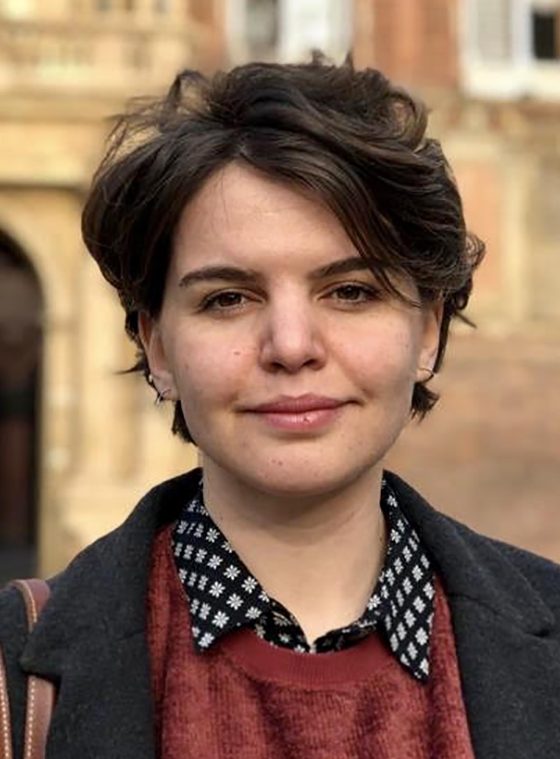
Canan Bolel, Pamela and Robert Center Fellow
“Bodies to Heal, Bodies to Convert: Protestant Missionaries and Jews in Nineteenth-Century Izmir”
Canan Bolel is a fifth-year Ph.D. student in the Interdisciplinary Program in Near and Middle Eastern Studies at the University of Washington. She was born in Izmir, Turkey, in 1990 and attended Sabanci University. In 2011, she obtained a B.A. degree in economics, and in 2013, an M.A. degree in political science. In 2013, she moved to the United Kingdom and started an M.Sc. degree in sociology at the London School of Economics and Political Science. Canan’s dissertation project, “Corporeal Constructions of Jewish Modernity and Marginality in Izmir, 1856-1914,” focuses on embodied marginalities and questions how Ottoman Jews constituted their identities within imperial and communal settings by focusing on the Jewish poor and diseased, criminals, and converts to Christianity in Izmir. This research maps a new methodological terrain by placing the Ottoman Jewish body at the center, explicating circumstances that permitted and produced multiple Ottoman Jewish modernities embedded in local and global discourses.

Jennifer Hunter, I. Mervin and Georgiana Gorasht Fellow
“Ritual and Power: Mitigating the Risks of Sex and Pregnancy in Late Antique Judaism”
Jennifer Hunter is a Ph.D. student in the interdisciplinary Near and Middle Eastern Studies Program. She earned her B.A. with a double major in religious studies and modern languages (Spanish and German) from Northern Arizona University. After earning her undergraduate degree, she attended Harvard University Divinity School, where she earned a Master of Theological Studies with a cross-comparative focus on religions in Late Antiquity (2nd-8th centuries CE). Post-master’s, Jennifer made her way back to Northern Arizona University, where she served as a lecturer in religious studies in the Comparative Cultural Studies Department for five years. Her commitment to the comparative study of religion is what drew her to the UW, and her current research interests focus on the study of ritual among Jews, Christians, and other religious groups of the ancient Near East, especially domestic rituals of the home that help shed light on the role of women in religious life.
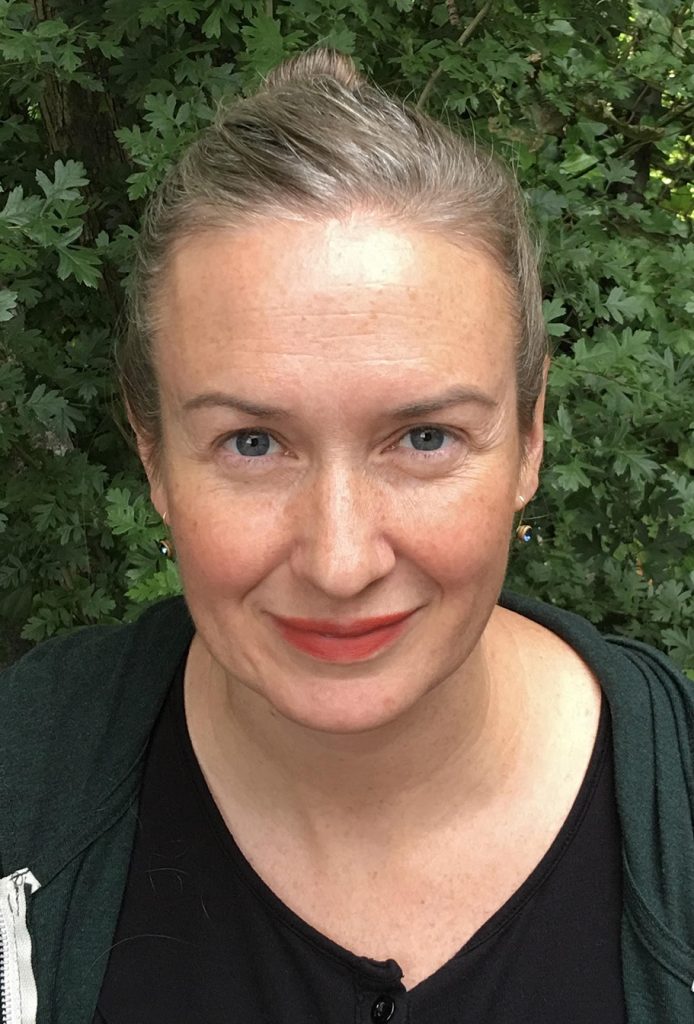
Erin Gilbert, Richard Willner Memorial Fellow
“Spanish Herbs, Algerian Sand: Max Aub’s Ecopoetics of Displacement in Diario de Djelfa”
Erin Gilbert is a Ph.D. candidate in comparative literature at the University of Washington, where her dissertation research is concerned with depictions of displacement, and the defamiliarization of places affected by conflict and other human-caused disturbances. As a graduate fellow in Jewish studies, she will explore these concepts in works by writer Max Aub that depict the concentration camps of Nazi-occupied France. She earned an MFA in fiction-writing and literature from Bennington College. She is currently participating in a Mellon Summer Fellowship for Public Projects in the Humanities, and is a past recipient of a Soden-Trueblood Graduate Publishing Fellowship at the University of Washington Press and a grant from the Joff Hanauer Endowment for Excellence in Western Civilization.
